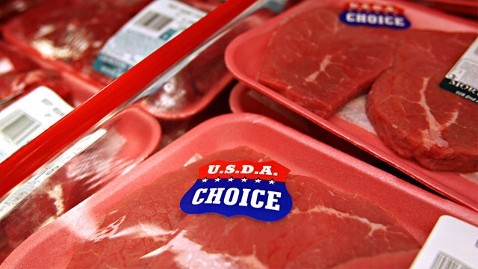The appointment of Iowa’s Angela Tagtow, a controversial “environmental nutritionist” and local food activist, to head the U.S. Department of Agriculture’s Center for Nutrition Policy and Promotion is causing more headaches for the agency, already facing criticism about politicization of federal nutrition advice and its consequences for public health.
By using the government’s official dietary guidelines as a tool to advance her well-established environmentalist agenda, Tagtow would undermine the USDA’s mandate — to provide families with science-based, impartial nutrition advice.
The USDA and the Department of Health and Human Services administer the Dietary Guidelines Advisory Committee, which makes recommendations regarding the dietary guidelines mandated by Congress. The guidelines, now being revised, are the basis for federal food and nutrition programs and welfare benefits such as SNAP and educational campaigns, including MyPlate (formerly the food pyramid). The USDA touts them to be “authoritative advice for people 2 years and older about how good dietary habits can promote health and reduce risk for major chronic diseases.”
The fourth meeting of the Dietary Guidelines Advisory Committee started Thursday and will conclude today.
According to Politico, recent advisory committee meetings raised eyebrows because “hot-button issues, such as diet and climate change,” are being discussed in an unprecedented way. The committee has even dedicated one of five subcommittees to “food sustainability and safety” to discuss how the food we eat contributes to climate change and how the government should recommend changes to our diets based on those concerns.
Sustainable food systems and environmental protection may be important, but these issues don’t belong in discussions of healthy eating.
That hasn’t stopped the Dietary Guidelines Advisory Committee from delving deeply into them over the past year. In the January meeting of the committee, member Miriam Nelson gushed about the importance of promoting foods that have the “littlest impact on the environment” and invited testimony from sustainability expert Kate Clancy, who argued it would be “perilous” not to take global climate change into account when dispensing dietary advice.
In April, a USDA spokesperson seemed to back away from the row by minimizing the Dietary Guidelines Advisory Committee’s role in policy-making, saying, “The committee is still in the early stages of its work, so it is premature to guess what their recommendations might be, and even more premature to speculate about what will be included in the final dietary guidelines.”
But the appointment of Tagtow to the USDA office responsible for not only developing and promoting the dietary guidelines, but advancing prominent programs such as MyPlate, suggests that the USDA is doubling down on raising the profile of our diet’s alleged effect on the climate and other issues that have more to do with political science than nutritional science.
For instance, Tagtow boasts that the mission of her consulting firm, Environmental Nutrition Solutions, “is to establish healthier food systems that are resilient, sustainable, ecologically sound, socially acceptable and economically viable.”
This isn’t nutrition. This is code language for politically charged activism. In what amounts to her policy platform statement, Tagtow writes that we should select meat and dairy products from animals that have been fed only grass diets.
She also repeats the myth that meat is an environmentally reckless form of protein, suggesting a plant-based diet instead. She says we should reduce our consumption of meat, lean or not, not because of any potential health benefits, but in order to “conserve natural resources and energy.”
Tagtow has suggested that Iowans could improve the state’s economy by eating only food grown in the state, at least part of the year.
She touted a Leopold Center for Sustainable Agriculture study, claiming that ” if Iowans ate five servings of fruits and vegetables per day, and Iowa farmers supplied that produce for three months of the year, these additional crops would add $300 million and more than 4,000 jobs to the Iowa economy.”
She fails to mention that in her utopian Iowa, residents wouldn’t likely enjoy the benefits of staples like oranges or pineapples for those months. Nor does she consider the devastation to Iowa’s agricultural community if her agro-protectionist ideals were implemented in other states.
Well, now she’s headed to the federal government to promote her narrow ideology.
The maxim that in government, “personnel is policy,” is especially true here, given Tagtow’s policymaking role. The priorities she’s spent her career advancing are far from the consensus among mainstream nutritionists.
Her appointment is a slap in the face to thousands of men and women in nutrition who daily work tirelessly and impartially to help Americans eat better. And it casts doubt over whether USDA is willing to dispense nutrition advice based on science rather than an activist agenda.
THE AUTHOR:
JEFF STIER is a senior fellow at the National Center for Public Policy Research in Washington, D.C. He heads its risk analysis division. Contact: [email protected].
Originally published at www.jeffstier.org.





